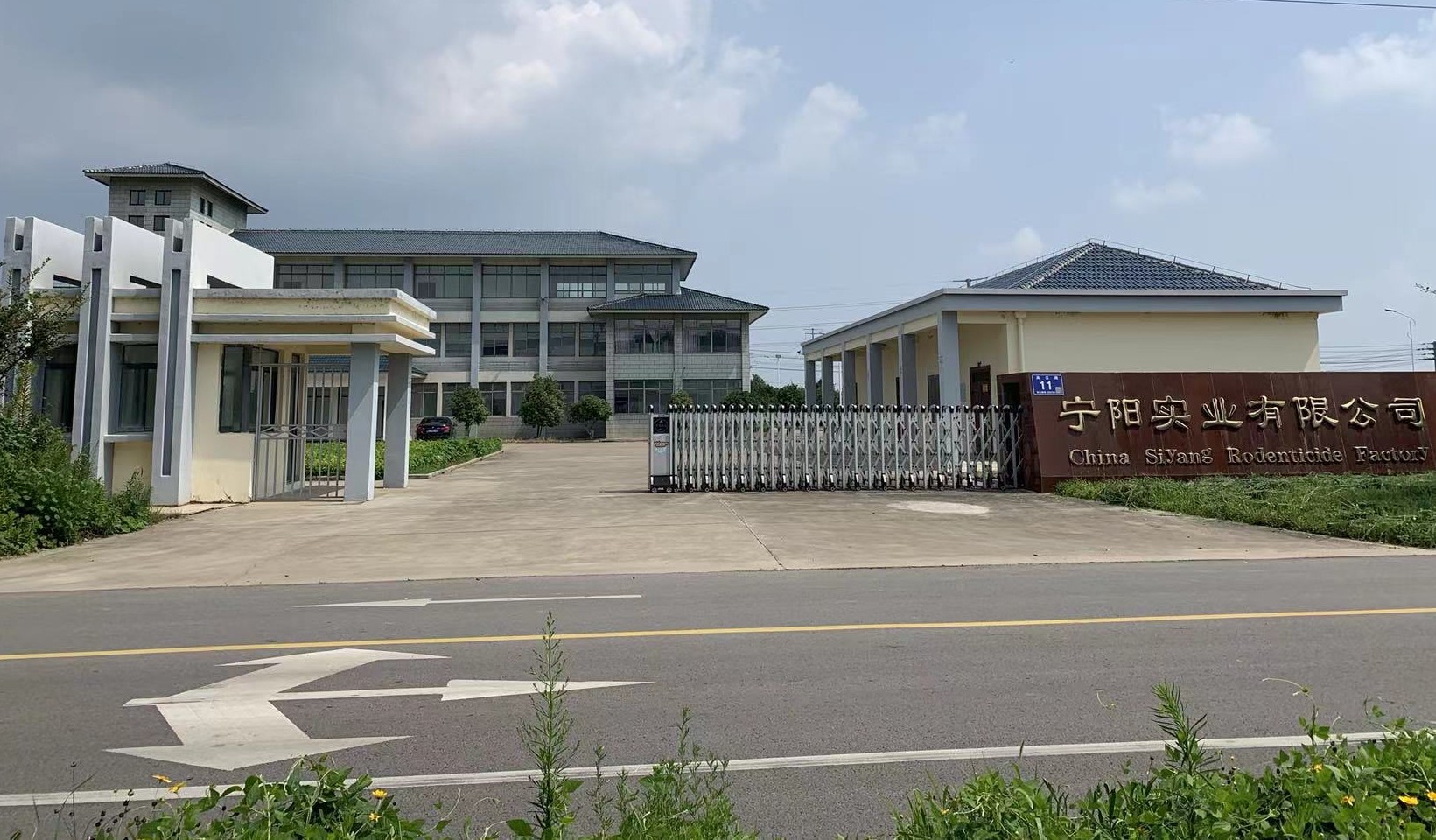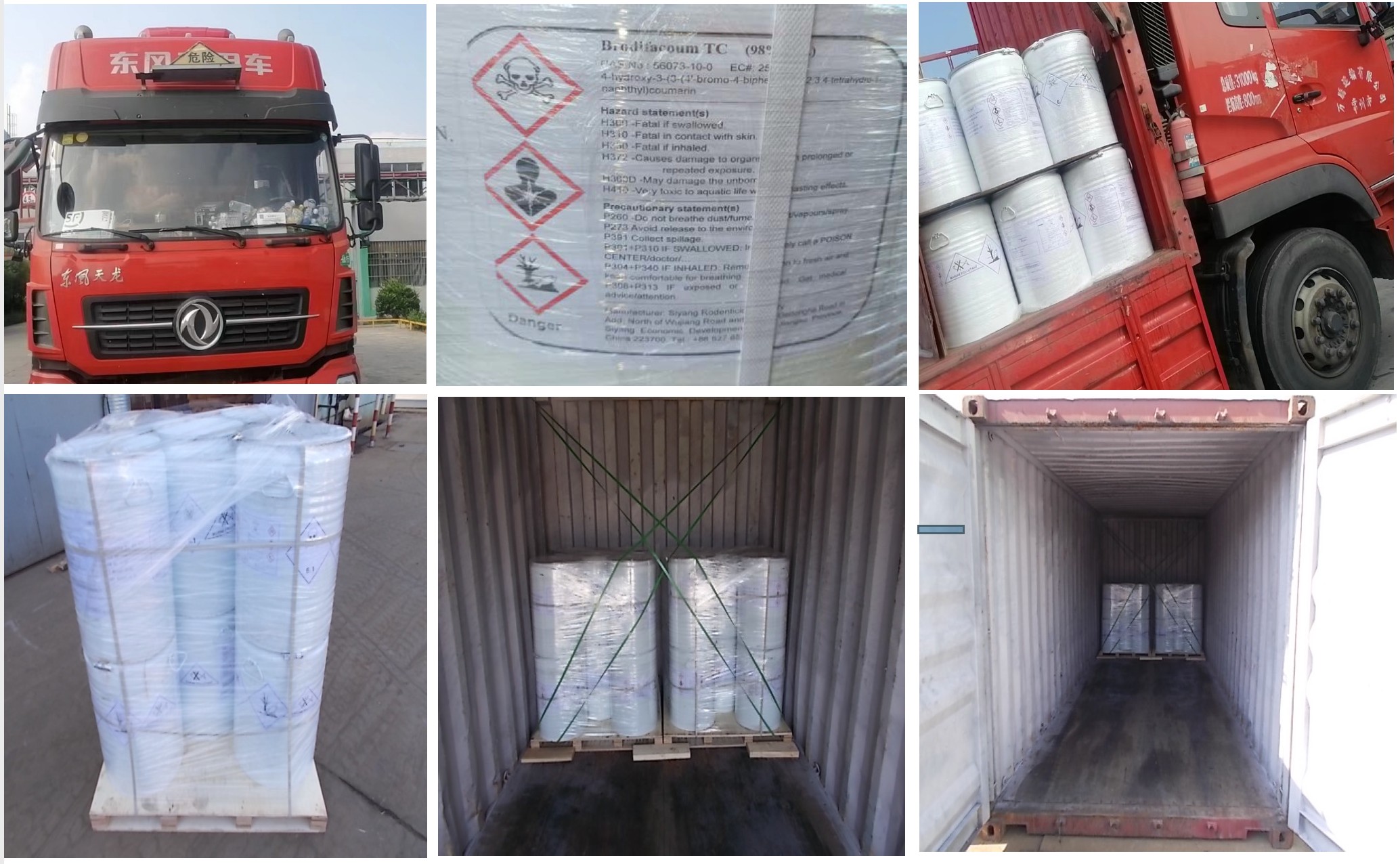Since obtaining export qualifications in 2006, our factory has primarily engaged in the production and export of technical materials for Brodifacoum and Bromadiolone. Over the past two decades, both domestic and international industry regulations have undergone significant changes. Internationally, the most notable changes include the European Union’s replacement of the Biocidal Products Directive (BPD) with the Biocidal Products Regulation (BPR) in 2013, followed by the implementation of the Classification, Labelling, and Packaging of Chemicals Regulation (CLP).
China’s major changes included a phase-out of the rodenticide industry during the first decade: the promulgation of the National Industrial Policy in 2005; the Catalogue of Projects Prohibited from Land Use issued in 2006; the formal implementation of the national standard (GB) for Bromadiolone and Brodifacoum in 2007; and the establishment of the Ministry of Industry and Information Technology (MIIT) in 2008. These reforms, policies and regulations eliminated three manufacturers, resulting in the reduction of China’s original five producers of technical rodenticides to just two. Then, over the subsequent decade, the state introduced a series of new policies and revised numerous laws and regulations.
In 2018, China underwent institutional reforms that also led to changes in the regulatory bodies overseeing the rodenticide industry. Currently, the administrative departments previously responsible for “technical rodenticides” have been consolidated from multiple ministries and commissions – namely the Institute for the Control of Agrochemicals, Ministry of Agriculture (ICAMA); the Ministry of Environmental Protection (MEP); the National Development and Reform Commission (NDRC); the Ministry of Public Security (MPS); the General Administration of Quality Supervision, Inspection and Quarantine (AQSIQ); the Ministry of Industry and Information Technology (MIIT); and the State Administration of Work Safety (SAWS) – into three primary departments: the Ministry of Public Security (MPS); the Ministry of Emergency Management (MEM); and the Ministry of Agriculture and Rural Affairs (MARA).
Therefore, the factory has invested significant resources over the past decades to address these challenges. Starting in 2025, we will no longer accept orders from new customers or respond to related inquiries. This decision stems primarily from two factors: First, new customers will inevitably require only minimal quantities of hypertoxic chemicals (bromadiolone technical material and brodifacoum technical material.) The compliant export procedures such as statutory packaging, transportation, commodity inspection, and declaration are practically impossible to implement in real-world operations. Second, due to factory relocation and withdrawal from the pesticide manufacturing industry, export clearance now requires specialized approval from the ICAMA and the establishment of dedicated channels, making the procedures relatively cumbersome. Therefore, we can only wait for qualified domestic or international enterprises to place bulk orders at this time.
Over the past decade or so, the main changes in the factory have been as follows:
- In 2013, considering that the factory had not produced rodenticide baits for over a decade, the “Pesticide Production License for rodenticide 0.005% RB” issued by the MIIT was formally relinquished to reduce administrative expenses for this project.
- In 2019, due to the safety distance between the factory and newly constructed residential areas no longer meeting the latest safety regulations and policies, we were compelled to cease production at the original site and began investing in the construction of a new factory. Concurrently, the old plant underwent a series of upgrades in compliance with the new Pesticide Law enacted in 2017, successfully obtaining a “Restricted-Pesticide License” issued by the MARA.
- In 2021, the factory ultimately completed its relocation by treating it as a non-production project (Upgrading Storage Facilities for HyperToxic Chemicals Brodifacoum and Bromadiolone), obtaining a “Hazardous Chemicals Permit” issued by MEM and a updated “Restricted Pesticide Permit” issued by MARA.
- From 2022 to 2023, due to relocation, our factory withdrew from the pesticide manufacturing industry and only sold inventory products (brodifacoum TC and bromadiolone TC). Therefore, the seven pesticide registration certificates issued by the Ministry of Agriculture listed below will not be renewed upon expiration.
– PD2007323 (Brodifacoum 98% TC), – Valid until September 17, 2022,
– PD20071101 (Brodifacoum 0.5% TK), – Valid until August 18, 2023,
– PD20071102 (Brodifacoum 0.005% RB), – Valid until August 18, 2023,
– PD20070322 (Bromadiolone 98% TC), – Valid until September 17, 2022,
– PD20081024 (Bromadiolone 0.5% TK), – Valid until August 6, 2022,
– PD20081154 (Warfarin 98% TC), – Valid until September 2, 2023,
– PD20083600 (Coumatetralyl 97% TC), – Valid until December 12, 2023.
- Currently held valid licenses:
– “Restricted Pesticide License” by MARA (for “state-designated sales” – restricted Bromadiolone Active Ingredient and Brodifacoum Active Ingredient), ours will expire on September 14, 2026.
– “Hazardous Chemicals License” by MEM, (for “hypertoxic substances” – controlled Brodifacoum TC and Bromadiolone TC), ours will expire on June 23, 2027.
- In June 2025, the storage facility for hypertoxic chemicals (brodifacoum and bromadiolone) at the new plant site, which had already been approved and licensed by MEM, underwent further upgrades. For example: Hiring qualified security personnel, installing additional cameras to achieve comprehensive, blind-spot-free surveillance, and replacing existing security measures with denser security grilles. It was ultimately accepted by a joint inspection team from the public security departments of Suqian City and Siyang County, in accordance with the Ministry of Public Security’s GA 1002-2012 standard. It must be noted that the factory warehouse, currently used for storing hypertoxic chemicals (technical brodifacoum and bromadiolone), has surveillance cameras connected to the county police department for real-time monitoring. In fact, this also signifies that the Ministry of Public Security’s 2005 regulations on hypertoxic chemicals have now been fully digitized.



